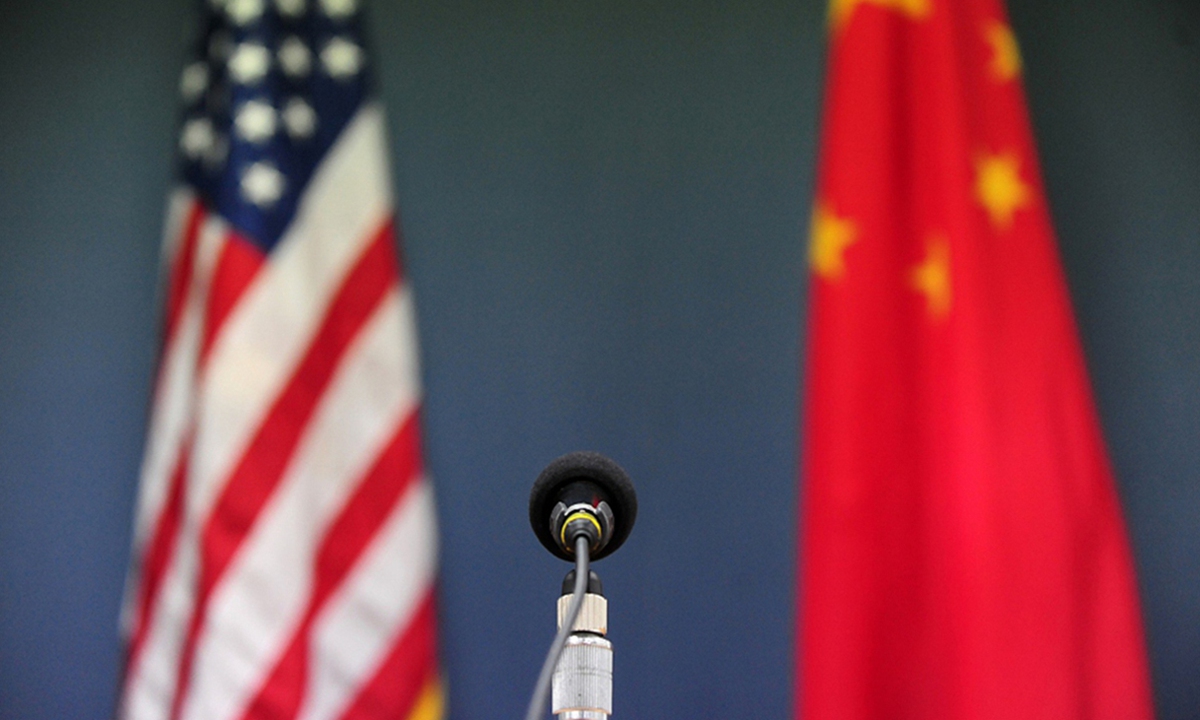
China US Photo: VCG
US Special Presidential Envoy for Climate John Kerry arrived in Beijing on Sunday for a four-day visit to China, during which he is scheduled to have in-depth exchanges with senior Chinese officials.
As climate change has long been seen as an area of great potential for cooperation between the US and China, it will be closely watched whether Kerry's visit, which comes after recent visits by US Secretary State Antony Blinken and US Treasury Secretary Janet Yellen, could generate any positive results in terms of promoting global climate governance and stabilizing China-US relations.
Yet, there is no denying that China-US climate cooperation still faces obstacles, especially against the backdrop of deteriorating bilateral ties caused by US' strategic containment against China. If the US continues its crackdown on China, escalating tensions and hostility between the two sides, it is unlikely to be conducive to any kind of cooperation, including on climate change.
It was the US that has sabotaged the atmosphere and mutual trust for climate cooperation and thus needs to take full responsibility for the suspension of formal climate talks with China. In August 2022, China announced countermeasures, including suspending talks on climate change with the US, in response to former US house speaker Nancy Pelosi's highly provocative visit to the island of Taiwan. The willful action of US politicians to trample on China's red line is sufficient to indicate that they don't care about bilateral cooperation at all. If anything, they are the main culprits who have undermined China-US climate cooperation.
While Washington has long wanted to isolate climate change issues from its other political and trade policies related to China, there is actually no way to separate bilateral cooperation on global warming from the broader context of China-US relations. This is because climate cooperation, which is prone to be politicized and involves industrial competition in such sectors as new energy, cannot be immune to the general direction of China-US relations.
China has set a target of hitting peak emissions before 2030 and achieving carbon neutrality before 2060, and has already incorporated the goals into its national development plans. China's efforts toward the goals won't be affected by the US attitude toward climate cooperation.
Considering the big picture of China-US relations and the international situation, there is indeed a need for climate cooperation between the two countries, but that cannot be dictated by the US. At a time when the whole world is facing serious challenges of climate change, the restart of stalled negotiations over global warming between the world's two largest economies is of great significance to global climate governance.
After climate change and the early stages of the El Nino weather pattern drove the hottest June on record, the first week of July became the hottest week on record, according to data from the UN's World Meteorological Organization.
While the positive sign of the Biden administration's intention to restore climate change talks is welcome, in the current environment of bilateral relations, China-US climate cooperation is unlikely to see a real ice-breaking outcome with Kerry's visit alone, which may only have some symbolic significance for the resumption of the cooperation mechanism. Tackling climate change requires technology, while Kerry's efforts to restart negotiations are at odds with the continuing US crackdown on China's technological development.
If the US is sincere about climate cooperation, it needs to show its sincerity with practical actions, so as to mend the past frictions and distrust.




